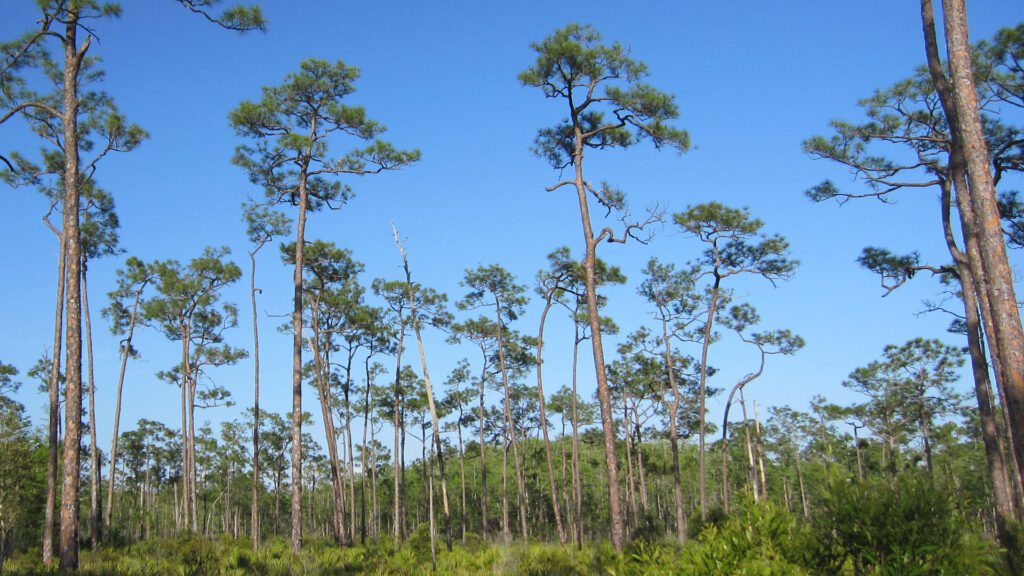By Oren Pincever
There’s plenty to do outside in Miami, a place blessed with sunshine and warm weather year-round. In a city with the ocean at your doorstep and an array of parks that are mere minutes away, we’re hardly suffering from a shortage of options. So why throw our fragile ecosystems under the bus and dive headfirst into more water parks?
The proposed Miami Wilds development, a water park set to be built adjacent to Zoo Miami, has stirred significant controversy due to its potentially detrimental effects on the pine rockland ecosystem, home to numerous endangered and protected species. Do we really need to add an 11th water park to increase our 50 million visitors per year? If so, does it really need to be built on an environmentally sensitive ecosystem filled with endangered species?

The pine rockland ecosystem is a unique and precious habitat, found only in South Florida and the Bahamas. This ecosystem features a mosaic of pine rockland forests, tropical hardwood hammocks and freshwater wetlands that support a wide array of wildlife. This ecosystem is significant because it hosts species not found anywhere else on Earth, making it a true ecological treasure and a critical habitat worth saving. Despite its importance, we have lost a whopping 97% of this habitat to urban sprawl and lumbering.
One of the most pressing concerns surrounding the Miami Wilds development is the expected destruction of this delicate habitat. The project proposes to convert 27.5 acres of pine rockland into a water park, a move that would have a devastating impact on the endangered and threatened plants and animals that call this place home. The proposed development, which includes water slides, pools and other such attractions, would not only disrupt the natural landscape but also pose a direct threat to species like the Florida bonneted bat and the Eastern indigo snake.
According to the Tropical Audubon Society, the Florida bonneted bat, an endangered species, relies on the pine rockland ecosystem for roosting and foraging. Converting its habitat into a water park would likely decimate the bat’s fragile population. Similarly, the Eastern indigo snake, a threatened species, uses the pine rocklands for shelter and foraging. The destruction of this area would likely pose a grave risk to their survival, pushing these already vulnerable species closer to extinction.
Further, this adds to the already prominent biodiversity loss being caused by climate change. These species are already being decimated, so we don’t have to go out of our way to kill them off.
In addition, the proposed project raises concerns about violations of the Endangered Species Act, a major federal law designed to protect species like these that are at risk of extinction. This act obliges us to take measures to conserve and protect threatened and endangered species while maintaining their habitats.
A major provision of this act is that critical habitats need to be protected at all costs. The destruction of pine rockland habitat for commercial development not only disregards the spirit of this vital law but sets a dangerous precedent for future projects, potentially undermining the protection of endangered species across the nation.

The developers argue that the Miami Wilds development would bring economic benefits to the area and create jobs. While economic growth is important, it should not come at the expense of our natural heritage and the survival of endangered species.
Miami is renowned for its natural beauty and biodiversity, so the presence of the rare pine rockland ecosystem should be a source of pride for the community. Preserving this unique habitat can contribute to eco-tourism and create sustainable jobs that do not harm the environment while contributing to the long-term resiliency of Miami-Dade County.
A responsible course of action would be to reconsider the Miami Wilds development in its current form. Alternatives should be explored, such as relocating the water park to a less ecologically sensitive area or canceling the project altogether. Collaborative efforts between developers, environmentalists and government agencies can lead to a win-win solution that balances economic interests with environmental preservation.
Ultimately, it is our moral and legal responsibility to ensure the preservation of our natural heritage. We must protect these irreplaceable ecosystems and the creatures that inhabit them. Urge the Miami-Dade County Commission to reevaluate this project and help protect one of Miami’s most precious and fragile ecosystems.
Oren Pincever is a master’s candidate at the University of Miami’s Marine, Atmospheric and Earth Science, studying ocean policy, and a policy intern at the CLEO Institute.
If you are interested in submitting an opinion piece to The Invading Sea, email Editor Nathan Crabbe at ncrabbe@fau.edu. Sign up for The Invading Sea newsletter by visiting here.



